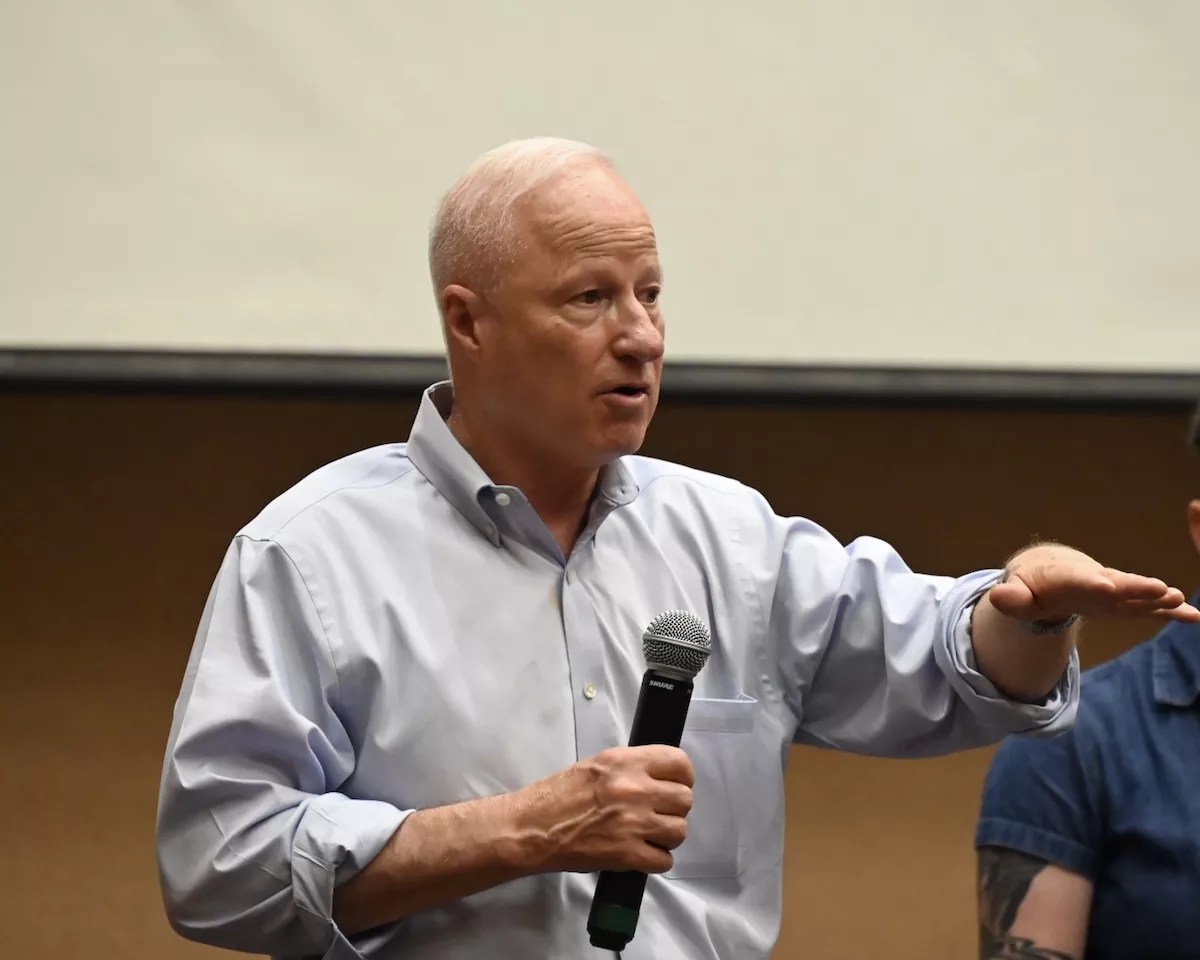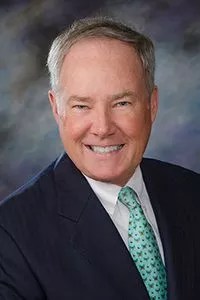
Bennito L. Kelty

Audio By Carbonatix
Colorado’s third-biggest city got one step closer to a “strong mayor” system on Monday, August 21, with the defeat of Aurora City Attorney Charlie Richardson in Arapahoe County District Court, where he had filed a lawsuit to remove a strong-mayor proposal from the November ballot.
But Richardson isn’t done yet.
“Obviously, we’re disappointed, but the door has not been closed,” Richardson tells Westword. “We are not giving up this fight in any sense.”
Richardson’s lawsuit challenged the strong-mayor proposal on two different fronts: the accuracy of the “ballot language that will be presented to voters,” he says; and whether it violates Colorado’s single-subject rule requiring that questions on a ballot affect only one specific issue.
Aurora voters have been flirting with the idea of turning their future mayors into CEO-like administrators of the fast-growing metro-area city since May, when the campaign to put the question on the November ballot launched.
Richardson and opponents in the Aurora City Council say the campaign gathered enough signatures to make it to the ballot by deceiving voters into signing a petition they thought would have created term limits on the council.
Although Aurora Mayor Mike Coffman denied any involvement for months, once the strong-mayor proposal petition was determined to have enough signatures to go on the November 7 ballot, he revealed to the public that he had been supporting the campaign since early July.
District Court Judge Elizabeth Volz handed down two rulings on Monday that cleared another barrier to the strong-mayor proposal, both of which Richardson says were “disappointing, obviously.” The judge made part of her decision based on a ruling that was also handed down by the Colorado Supreme Court on Monday “in a freakishly coincidental manner,” according to Richardson.
“After the Supreme Court decision [Monday], she had no choice but to defer the challenge,” Richardson claims. “She made the right call on that.”
An effort to remove Proposition HH, a measure to decrease property taxes, from the statewide ballot was the case that affected part of Volz’s decision. As with the strong-mayor proposal, Proposition HH was being challenged because it supposedly violated Colorado’s single-subject rule.

Aurora lawyer and former city councilman Charlie Richardson is suing to make sure voters know the details of an upcoming ballot measure.
Richardson’s lawsuit claimed that the strong-mayor proposal not only affected the powers of Aurora’s mayors, but also changed term limits and the abilities of the Aurora City Council.
Volz essentially put the question on hold, Richardson says, because the Colorado Supreme Court determined that judges can’t rule on single-subject issues until after they go to the ballot. “Only if the voters pass the issue can a single-subject challenge be brought,” he explains. “That makes sense. If it’s voted down, then the courts don’t have to use their resources to address a dead issue.”
If voters approve the strong-mayor proposal in November, Richardson can challenge it on the single-subject rule at that time, essentially giving him another chance to defeat it.
“If this thing does pass – which we hope it doesn’t – we would have a single-subject challenge after the election,” Richardson says. “That’s been preserved.”
While he’s still hopeful, he lost his challenge regarding the proposal’s language, with Volz ruling that the way it is currently being presented to voters is “good enough,” according to Richardson.
“We did lose that portion of the case that alleged the ballot title did not reflect the extensive changes to the city charter if this thing were to pass,” Richardson says. “We wanted a more accurate description of all those changes.”
But even if the judge had accepted Richardson’s alternative, the question would still have to be on the ballot, the former city attorney notes – so the challenge to its language was never a critical part of the fight. “If we had won the substitute language argument, it would still have gone to a vote,” he says. “So I don’t think this is a loss with a capital L. Nevertheless, we’re disappointed.”
Richardson can appeal the decision to keep the ballot language as it is, which he plans to do if the proposal clears all the hurdles that remain, including a formal protest with the Aurora City Clerk; the election in November; and the reinstated challenge on the basis of the single-subject rule.
For now, he’s looking forward to the administrative hearing before Aurora City Clerk Kadee Rodriguez on August 30.
The meeting will “address omissions and defects that the clerk should have remedied,” Richardson says. Rodriguez will have ten days to issue a ruling on Richardson’s protest.
Although he admits to feeling “some natural trepidation” about the hearing, RIchardson remains confident that there are “eight out of ten councilmembers who vociferously support what we’re trying to do.” His main argument before the city clerk, he says, will be that the strong-mayor system should have been presented to Aurora voters in a more straightforward way, because it could have given the city the opportunity to debate the issue.
“It’s a shame that this strong-mayor proposal has been presented in the way it has been,” Richardson says. “There should have been community involvement, because you can have a strong debate on the pros and cons of a strong mayor versus city manager government.”